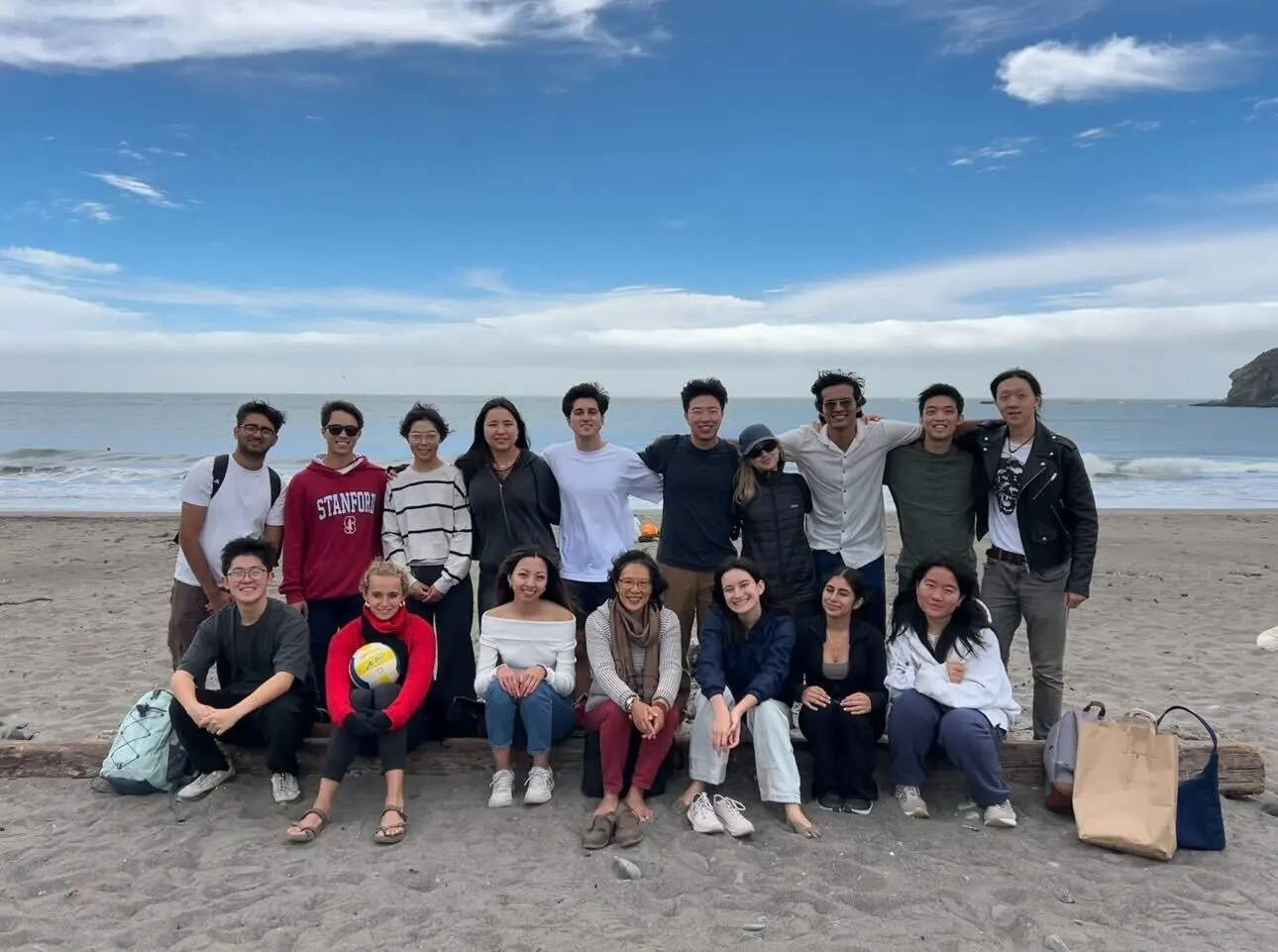“Who are you besides your work?”
This question stunned and daunted Nhi Nguyen ’27, one of 15 students in this year’s three-week Sophomore College (SoCo) class called “The Cult of Happiness.”
Immersed in Stanford’s “grind” culture of relentless work and minimal rest, Nguyen said she found it challenging to define her identity without work. Doing so meant reassessing what happiness meant to her, she said.
Such exercises formed an integral part of the class, which aimed to examine happiness through a cross-cultural lens, according to humanities professor Haiyan Lee, who taught the course. Lee specializes in comparative literature and East Asian language and culture. She wrote in an email to The Daily that students worked toward achieving a “gateway” to happiness while engaging in a “critical interrogation” of the very notion of happiness itself by reading and discussing works like Jonathan Haidt’s “The Happiness Hypothesis” and Ling Ma’s “Severance.”
“All of this [academia] served to dislodge students from mainstream notions of happiness purveyed by the happiness industry and Hollywood,” Lee wrote.
The course was structured around three main questions: What is happiness and how to be happy? Is there more to happiness than feeling happy, and more to life than happiness? Do people in the past and in other cultures think about happiness differently?
Nguyen said she learned something new about happiness and about herself: She realized happiness, for her, would not come from the image of vocational success popularized by the American Dream. Instead, she said it would come from the Eastern conceptualizations of happiness, which emphasize spirituality, family and community.
The class’s cross-cultural analyses extended beyond personal reflection, spurring philosophical debate.
Ben Han M.A. ’25, a SoCo Advisor (SCA), said there were radically different definitions of happiness between ancient Greek and Chinese cultures. While ancient Greek culture positioned “a good death” as the cornerstone of happiness, ancient Chinese culture valued producing a male heir. Han said such ideas formed the seed of discussions in which students examined happiness from critical historical and cross-cultural perspectives, asking questions like, “Can we find happiness here?”
The Cult of Happiness students also wrote mock obituaries and tackled what’s called the “Dating Project.” The activities “invited students to examine their hitherto unexamined beliefs, values and goals,” Lee wrote.
Sydney Dever ’27, a student in the class, said she admired the unconventionality of mock writing her own obituary, finding that it provoked her intrigue about legacy.
“I’m very interested in the idea of being remembered or not remembered,” Dever said. “Having to actually put into words from the voice of someone who cares about me a lot and who I also care about… was a very enlightening experience.”
Lee wrote that for the “Dating Project,” students asked someone on a date and wrote a self-reflective paper afterward. The activity was meant to illustrate the importance of human connection to happiness and well-being, Lee wrote.
Though Nguyen did not ask anyone on a romantic date, she said the exercise encouraged her to reignite the sense of fresh encounter and socialization that she felt she had lost since New Student Orientation a year prior.
“I’m glad we got experience engaging [with] … a stranger. And three hours later, be a friend,” Nguyen said.
The course’s integration with students’ personal lives fostered a tight-knit community that, to many, was its most memorable aspect. Students and SCAs said they often found themselves continuing classroom discussions over SCA-provided snacks in dorm hallways during the residence-based program.
“The best takeaway is honestly a fusion of the people, but also how all of our class grew from that three weeks,” Han said.
Dever agreed, adding that the class encouraged the small group to “have these really rich conversations in which we have to be vulnerable in order to really understand and get to the part of the problems we’re trying to solve.”
